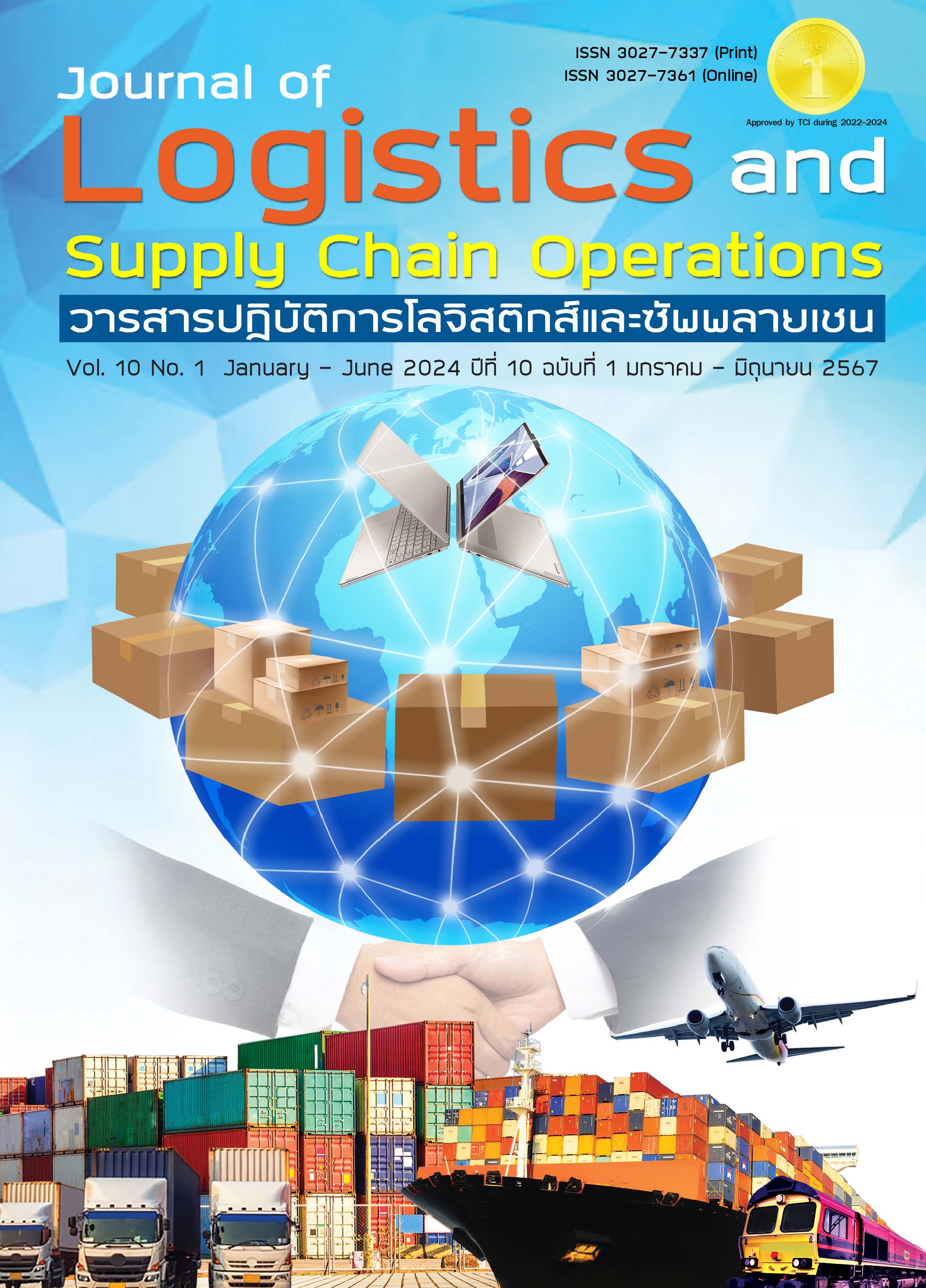Strategic Leadership, Creativity, Organization Culture, and Learning Organization Affecting to Operational effectiveness of Local Administrative Organizations
DOI:
https://doi.org/10.53848/jlscc.v10i1.264854Keywords:
Strategic leadership, Creativity, Organization culture, Learning organizations, Local administrative operationsAbstract
This research aims to study the 1) levels of strategic leadership, creativity, organization culture, learning organization and the effectiveness of local administrative organizations 2) Influence of strategic leadership, creativity, organization culture, and learning organization on the effectiveness of local administrative organizations, and 3) to develop the model effectiveness of local administrative organizations. This research is quantitative. The sample was 420 executives, executives, directors, and academics/practitioners using a randomized group method. Collect data using questionnaires Analyze data with structural equations. The finding found that 1) the level of effectiveness of local administrative organizations is the highest, organizational culture, organization of learning. Strategic leadership Creativity 2) Strategic leadership Creativity Organizational culture Learning organizations influence the effectiveness of local government organizations 3) The local administrative organizations effectiveness model developed by the researchers is the "SSB Model", a model for promoting the core practices of local government organizations that emphasize community participation in promoting the quality of life with local administrative organizations to improve the quality of life of citizens.
References
Al Harbi, J.A. (2017). Transformation leadership and creativity effects of employees' psychological empowerment and intrinsic motivation. Personnel Review, 48(5), 1082-1099.
Al-Dhaafri, H., & Alosani, M. S. (2021). Role of leadership, strategic planning and entrepreneurial organizational culture towards achieving organizational excellence: evidence from public sector using SEM. Measuring business excellence. https://doi.org/10.1108/MBE-02-2021-0021.
Bogolyubov, P. (2020). The learning company: the learning organization of the British way – its origins, present, and future directions. The Learning Organization, 27(3), 249-257.
Contino, D. S. (2004). Leadership competencies: knowledge, skills, and aptitudes nurses need to lead organizations effectively. Critical Care Nurse, 24(3), 52-64.
Ellinger, A. D., & Ellinger, A. E. (2021). Providing strategic leadership for learning: optimizing managerial coaching to build learning organizations. The learning organization, 28(4), 337-351.
Fornell, C., & Larcker, D. F. (1981). Evaluating structural equation models with unobservable variables and measurement error. Journal of Marketing Research, 18(1), 39–50. https://doi.org/10.2307/3151312.
Hair, J. F., Black, W. C., Babin, B. J. & Anderson, R. E. (2010). Multivariate Data Analysis. 7th ed., Pearson Education: Upper Saddle River.
Kelloway, E. K. (1998). Using LISREL for structural equation modeling: A researcher's guide. United States of America: SAGE Publications Inc.
Kline, R. B. (2016). Principles and practice of structural equation modeling 4th ed., New York: The Guilford.
Koranteng, F. O., Iddris, F., Dwomoh, G., & Kofi Dogbe, C. S. (2022). Assessing the moderating role of organizational culture in the relationship between organizational leadership and organizational efficiency in the banking sector. Evidence-based HRM: a Global Forum for Empirical Scholarship. Emerald Publishing Limited 2049-3983; https://doi.org/10.1108/EBHRM-07-2021-0143.
Men, C., & Jia, R. (2021). Knowledge-oriented leadership, team learning, and team creativity: the roles of task interdependence and task complexity. Leadership & organization development journal, 42(6), 882-898.
Miao, C., Humphrey, R. H., & Qian, S. (2018). Emotional intelligence and authentic leadership: a meta-analysis. Leadership and Organization Development Journal, 39(5), 679-690.
Nugroho, M. A. (2018). The effects of collaborative cultures and knowledge sharing on organizational learning. Journal of Organizational Change Management, 31(5), 1138-1152.
Patyal, V. S., & Koilakuntla, M. (2018). Impact of organizational culture on quality management practices: an empirical investigation. Benchmarking: An International Journal, 25(3). https://doi.org/10.1108/BIJ-12-2016-0191.
Potjanajaruwit, P., & Girdwichai, L. (2019). Creative innovation of startup businesses in Thailand 4.0 era. Journal of International Studies, 12(3).
Sparrow, P., & Cooper, C. (2014). Organizational effectiveness, people and performance: new challenge, new research agenda. Journal of Organizational Effectiveness, 1(1), 2-13.
Sujan, M. (2015). An organization without a memory: a qualitative study of hospital staff perceptions on reporting and organizational learning for patient safety. Reliability engineering & system safety, 144, 45-52.
Woraphathirakul. P. (2019). Motivation for personnel's performance towards the management of the Office of National Health Insurance Area 13 (Bangkok). Journal of the Great Chula Nakrat, 6(1), 486-498.
Xu, F., & Wang, X. (2019). Leaders' creativity expectations and followers' radical creativity Based on the perspective of the creative process. Chinese management studies, 13(1), 214-23.
Yin Lau, P. Y., Park, S., & McLean, G. N. (2020). Learning organization and organizational citizenship behavior in West Malaysia: the moderating role of team-oriented culture. European journal of training and development, 44(8/9), 847-864.



